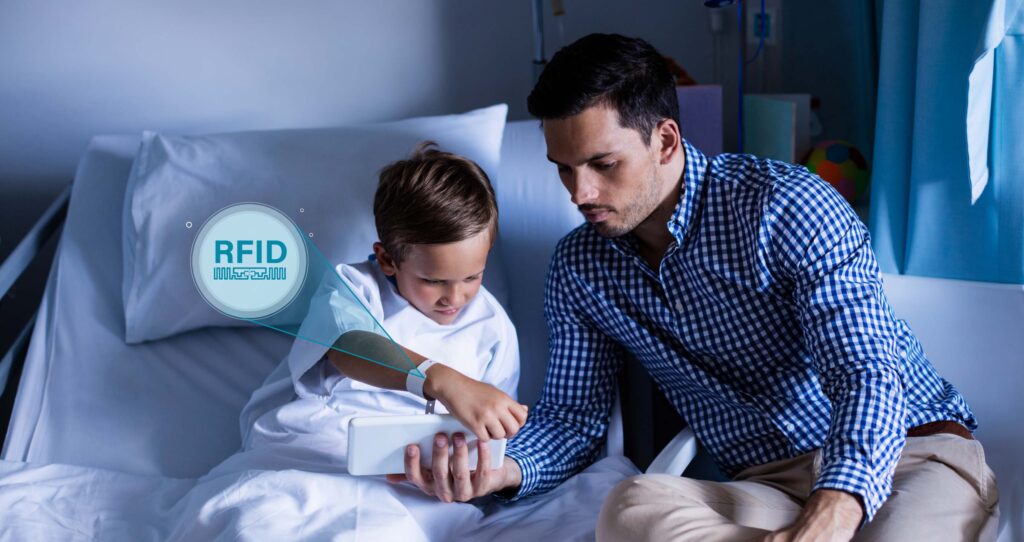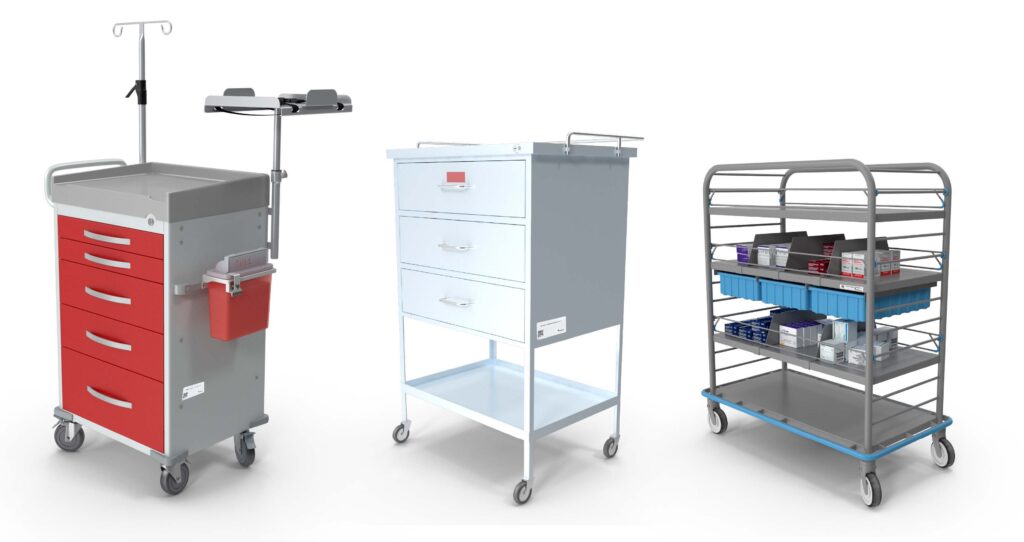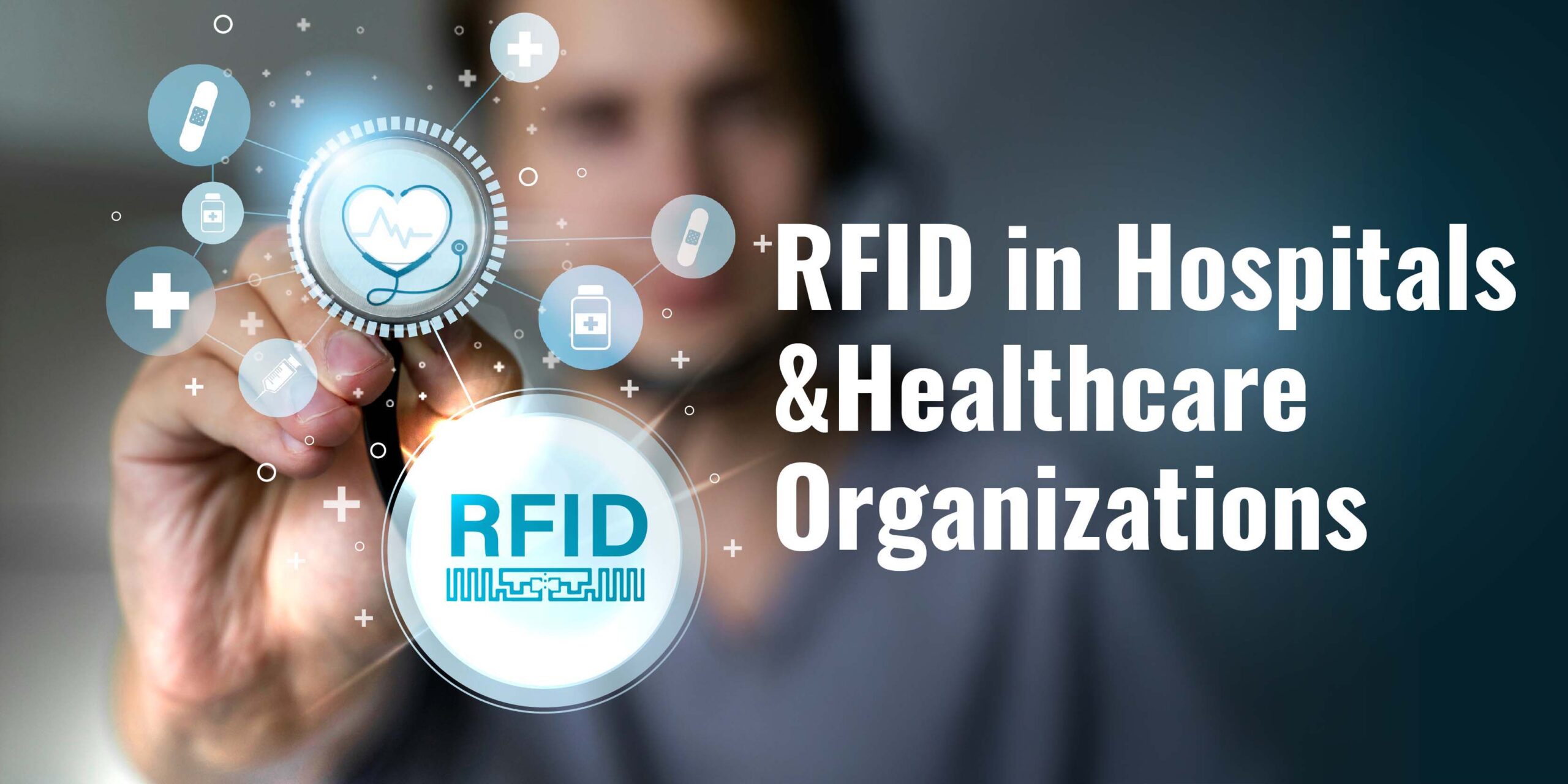Introduction
In the dynamic world of healthcare, patient safety, managing inventory, and running things efficiently are super important. Technology helps a lot in making everything smoother and better. One technology that’s really making a difference in healthcare is passive UHF RFID, also known as RAIN RFID, which is revolutionizing RFID in Healthcare through innovative tracking solutions. This tech can automate tracking, make data more accurate, and improve the management of assets. Hospitals and healthcare organizations around the world are choosing it for these reasons. But why is this specific RFID technology getting so much attention? Let’s explore why it’s being adopted widely.
Improved Patient Safety
Keeping patients safe is the most important goal in healthcare. Mistakes like mixing up patient identities, losing records, or giving the wrong medication can be very dangerous. Passive UHF RFID technology helps to prevent these errors by providing precise and real-time tracking of patients, medicines, and medical tools.

- Patient Tracking: RFID wristbands equipped with passive UHF tags are becoming a prior way to identify and track patients from admission to discharge. These wristbands contain essential patient information, including medical history, allergies, and current medications, which are accessible by hospital staff with RFID readers. This technology ensures that medical professionals always have the most up-to-date information at their fingertips, reducing the risk of errors like administering the wrong treatment.
- Medication Management: One of the most critical aspects of patient care is ensuring that patients receive the right medication at the right time. With RAIN RFID technology, medications can be tagged, and their usage can be tracked in real-time, reducing the chances of administration errors. RFID also helps prevent the use of expired or recalled medications, ensuring that only safe and approved medications are dispensed.
Real-Time Asset and Equipment Tracking
Hospitals have various medical equipment, from wheelchairs to life-saving devices like defibrillators, oxygen tanks, and infusion pumps. The challenge is that these assets are often misplaced or not returned to their designated locations, leading to unnecessary downtime or delays in patient care. Lab Equipment Tracking has become a critical component of this asset management strategy, ensuring that sophisticated and expensive laboratory instruments are monitored, maintained, and utilized efficiently.

RAIN RFID Benefits:
- Instrument Tracking: RFID-tagged surgical tools can be tracked throughout their lifecycle, from sterilization to usage in operating rooms.
- Post-Surgery Audits: RFID ensures no instruments are left inside patients post-surgery, improving safety and reducing liability.
- Sterilization Records: Automated tracking helps maintain sterilization records, supporting compliance with healthcare standards.
Streamlined Inventory Management
Hospitals and healthcare organizations manage vast inventories of medical supplies, from syringes and bandages to surgical instruments and personal protective equipment (PPE). The management of these items can be a logistical nightmare, especially in larger facilities. Mismanaged inventory can lead to stockouts, overstocking, and waste, which in turn impacts operational costs and patient care.
- Inventory Visibility: Passive UHF RFID tags attached to medical supplies provide hospitals with real-time visibility into their stock levels. By integrating RFID technology with inventory management systems, hospitals can automate inventory tracking and reduce human error. RFID-enabled shelves or bins can automatically update inventory records when items are taken or replaced, ensuring accurate and timely data without the need for manual stock counts.
- Reducing Waste: RFID’s ability to track the expiration dates of medical supplies is another major benefit. Hospitals can proactively manage inventory by ensuring that older stock is used first, reducing the likelihood of expired products being used on patients. In addition, RFID can assist in identifying products that are at risk of overstocking, preventing unnecessary purchases, and cutting down on waste.
Enhanced Workflow Efficiency
Healthcare professionals work in an environment where every second counts. Inefficient workflows can have a significant impact on patient care, particularly in high-pressure situations. By automating manual processes and providing instant access to critical information, passive UHF RFID helps streamline hospital operations and improve overall efficiency.
- Reduced Human Errors: RFID technology eliminates the need for manual data entry, which can lead to errors, especially in high-pressure environments. With passive UHF RFID, data is automatically captured and updated in real-time, ensuring that accurate information is always available for decision-making. For instance, when a nurse enters a patient’s room, the RFID system can instantly identify the patient, verify the prescribed medication, and ensure that the correct procedure is followed, thus reducing the chance of mistakes.
- Faster Patient Turnaround: The integration of RFID with hospital information systems can accelerate patient admissions, discharges, and transfers. RFID can automate bed tracking, monitor patient flow, and ensure that rooms are cleaned and prepared for the next patient promptly. This helps optimize hospital bed capacity, reduces waiting times, and improves patient throughput.
Cost Efficiency
In the face of rising healthcare costs, efficiency is key. Passive UHF RFID can significantly reduce operational costs by streamlining various processes, from inventory management to equipment maintenance.
- Minimizing Losses: One of the biggest challenges hospitals face is the loss of equipment and supplies. RFID technology drastically reduces the risk of loss by providing accurate, real-time location data. This reduces the need for replacements and ensures that valuable assets are used efficiently, ultimately saving money.
- Operational Efficiency: RFID-enabled automation minimizes the need for manual labor, reducing the workload on staff. Inventory audits, asset tracking, and patient identification can all be automated, allowing hospital personnel to focus more on patient care and less on administrative tasks. As a result, hospitals can improve productivity and reduce costs associated with human error or inefficiencies.
Infection Control
Preventing the spread of infections within healthcare facilities is a major concern. RAIN RFID can play a role in maintaining hygiene standards.
Use Cases:
- Linen Tracking: RFID tags in linens track their usage and ensure they are laundered after each use
- Hand Hygiene Compliance: RFID systems monitor staff hand hygiene practices, ensuring compliance with infection control protocols.
- Quarantine Management: RFID tags can track contaminated equipment or materials, preventing their use until they are sanitized.
Seamless Integration with Healthcare IT Systems
Healthcare organizations increasingly rely on integrated IT systems to manage patient data, supply chains, and operations. Passive UHF RFID technology can seamlessly integrate with existing healthcare IT systems, such as Electronic Health Records (EHR) and Enterprise Resource Planning (ERP) systems, to provide a unified, automated approach to managing hospital operations.
Data Synchronization: RFID systems provide automatic data capture, ensuring that asset, inventory, and patient information are synchronized across all systems in real-time. This integration helps hospitals make better decisions, optimize resources, and respond more quickly to changing needs.
Conclusion
Passive UHF (RAIN) RFID has proven to be a transformative technology for healthcare organizations, improving patient safety, inventory management, asset tracking, and operational efficiency. As hospitals continue to adopt this technology, they can streamline their operations, reduce costs, and, most importantly, enhance the quality of care provided to patients. The growing use of passive UHF RFID in healthcare is a clear indication that its benefits far outweigh its costs, making it the technology of choice for modern hospitals and healthcare organizations worldwide.
